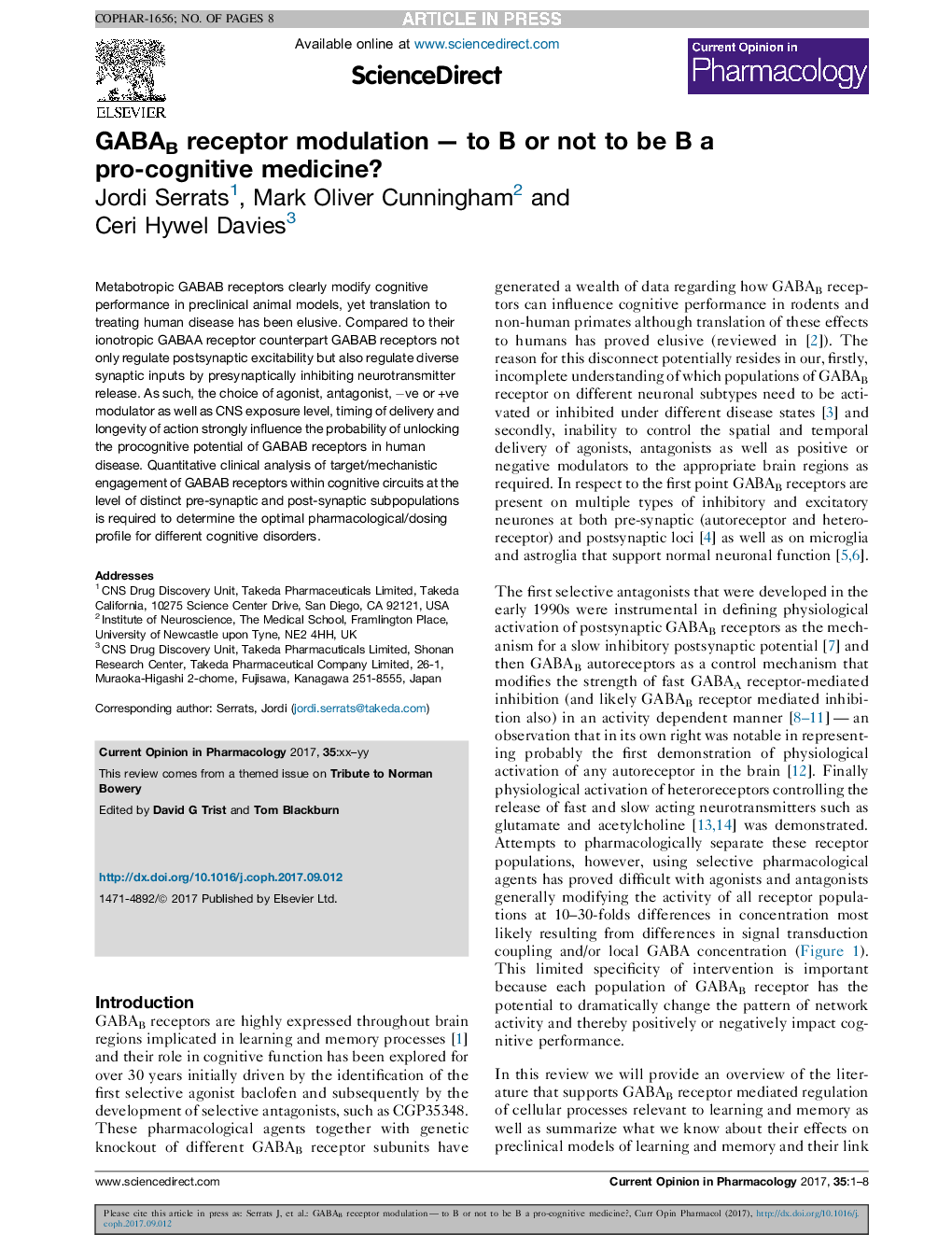| Article ID | Journal | Published Year | Pages | File Type |
|---|---|---|---|---|
| 8528811 | Current Opinion in Pharmacology | 2017 | 8 Pages |
Abstract
Metabotropic GABAB receptors clearly modify cognitive performance in preclinical animal models, yet translation to treating human disease has been elusive. Compared to their ionotropic GABAA receptor counterpart GABAB receptors not only regulate postsynaptic excitability but also regulate diverse synaptic inputs by presynaptically inhibiting neurotransmitter release. As such, the choice of agonist, antagonist, âve or +ve modulator as well as CNS exposure level, timing of delivery and longevity of action strongly influence the probability of unlocking the procognitive potential of GABAB receptors in human disease. Quantitative clinical analysis of target/mechanistic engagement of GABAB receptors within cognitive circuits at the level of distinct pre-synaptic and post-synaptic subpopulations is required to determine the optimal pharmacological/dosing profile for different cognitive disorders.
Related Topics
Life Sciences
Neuroscience
Cellular and Molecular Neuroscience
Authors
Jordi Serrats, Mark Oliver Cunningham, Ceri Hywel Davies,
